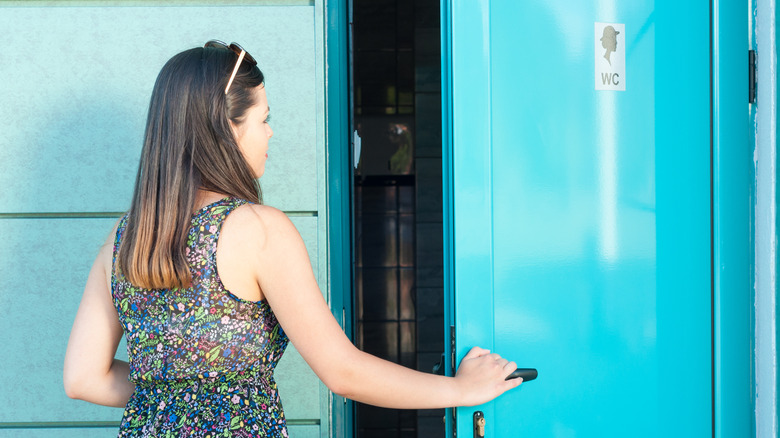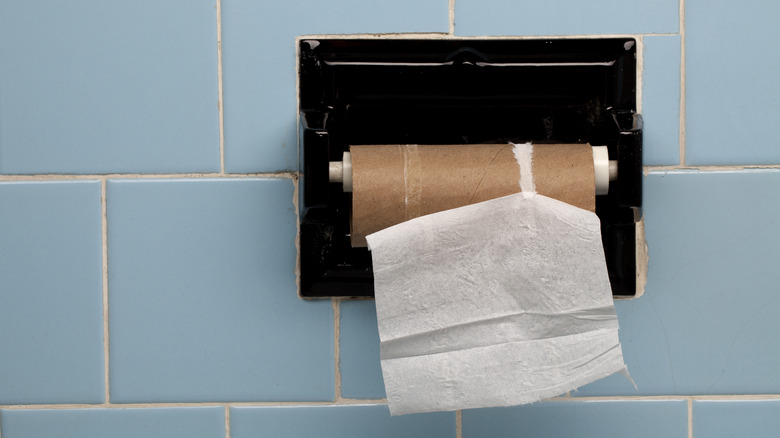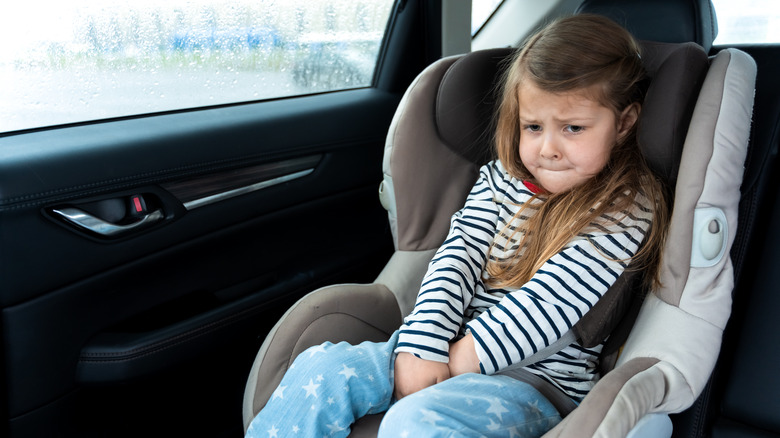Peeing Without An Urge Has An Unexpected Effect On Your Body
Before long car rides when you were a kid, your mother probably told you to "try" to pee to avoid needing to make an unnecessary stop. Mom also wanted to avoid needing to bring a change of clothes for you in case you had an accident. Sometimes you adopt this strategy as an adult, making sure you empty your bladder before you head to work in case you run into a traffic jam. Having to hold your pee can be stressful, especially when you need to pee after drinking a ton of water or coffee.
Your bladder expands as your kidney produces urine to filter out water and waste from your bloodstream. When your bladder fills with a certain amount of fluid, it sends a message to your brain that it's time to find a bathroom. Although your bladder can hold up to two cups of pee, you could feel the urge to pee well before then. However, peeing without an urge — that "just in case" pee — teaches your bladder some bad habits.
How peeing without an urge affects your bladder
When your bladder begins to fill, it expands to hold the urine. When it first starts to expand, the stretch of your bladder will send a slight urge to your brain, telling you to maybe start looking for an exit off the highway. As your bladder begins holding between 7 and 15 ounces of urine, your brain says it's time to go. You could feel that sense of urgency when it fills even more (per The Physio Spot). As you pee, your bladder muscles contract as it empties. The bladder itself shrinks once it's empty.
If you pee before the bladder is full, your bladder gets used to emptying when it's not fully stretched. The nerve signal from your bladder to your brain triggers much earlier so that the urge to pee comes when you have much less urine. Your bladder also shrinks in size. That means you'll feel the need to pee much more frequently. According to The Physio Spot, you should pee between five and eight times a day, which comes to about every two or three hours. Although it's normal for people over 50 to need to pee during the night, frequently waking up to pee could be a sign of a condition like sleep apnea.
How to train your bladder's urge to pee
If you find yourself running to the bathroom more than eight times a day, you can work at training your bladder and its urges. University of Washington Medicine suggests eliminating foods and beverages that can irritate your bladder such as coffee, alcohol, chocolate, tomatoes, and any acidic juices. Instead, switch to water, starting with 4 cups a day and building to 8. When you first feel the urge to pee, wait for five minutes. Gradually increase the time when the urge first hits until you pee every two to three hours. According to The Conversation, this might not work for the 30% of people who have overactive or irritable bladders.
Insight Pelvic Health has an interesting trick you can try. If two or three hours haven't passed since your last pee and you get the urge, try pointing your toes. That affects the nerve pathways that also signal from your bladder to your brain.
Of course, holding your pee for too long can be risky. Sharp Health says holding your pee beyond discomfort can cause bacteria to build up and cause an infection. You could also overstretch your bladder and create a dysfunction of your urinary system.



